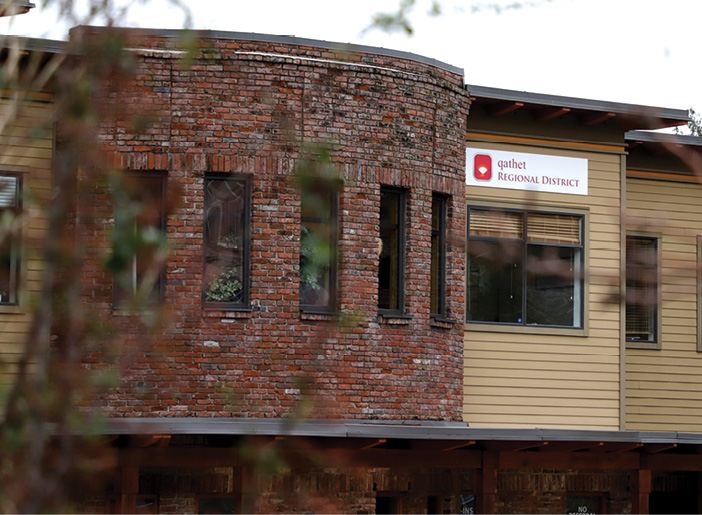By Abby Francis | Local Journalism Initiative Reporter
The City of Powell River is not the only municipality to consider changing its name.
In fact, many other places all around the world have not only considered name changes, but actually have gone through and changed their name. In history –and recent years, many cities, and even countries have changed their names.
Ever heard of York, Ontario?
Well, in 1834 York was renamed to Toronto. In fact, Toronto has been renamed three separate times. The earliest name was given by the French who had a trading post in the area; they called it Toronto, which they had derived from the Mohawk word ‘tkaronto’ (where there are trees standing in the water).
In 1793 after a small town had been built in the area, the place was renamed to ‘York’, named after King George III’s son, the Duke of York.
Leading to 1834, when the town gained a population that turned it into a city, it became Toronto once more.
Toronto isn’t the only Canadian city to be renamed.
In 1827, Bytown was originally named after John By, a man who transitioned a campground into a construction base for the Rideau Canal. The area became populated very quickly, and was then known as Bytown. However, the town, full of contractors and laborers, was met with loggers and forestry professionals as the industry shifted to focus on timber trade. The new industry brought in many new people, turning Bytown into a city, which led to a name change. In 1855, Bytown became known as Ottawa, the capital city of Canada. The name Ottawa was derived from the Algonquin First Nation word ‘Odawa’ (to trade).
The Cree and Metis, referred to an area in Saskatchewan as oskana ka-asastēki (Pile-of-Bones). The area was known as this because of a practice where the Indigenous peoples would leave piles of bison bones they had hunted on the ground to honor the animal’s spirit, because bison were being over-hunted by non-Indigenous. After settlers emerged in 1882, the area was then called ‘Regina’ (‘queen’ in Latin) in honor of the British monarch Queen Victoria.
These name changes are just the beginning.
Caribou Crossing, Yukon was renamed to Carcross in 1904, because of the confusion with mail addresses as Caribou Crossing also exists in both Alaska and British Columbia. The name ‘Carcross’ came from a combination of the original name ‘Caribou Crossing.’
In 1916, Berlin, Ontario became known as Kitchener. After the first world war, there was an extreme Anti-German sentiment movement that pushed towards a name change of the city. Berlin was a Canadian city that was made up of a vast majority of people who had immigrated from Germany to Canada in hopes of a better life. Kitchener was chosen after a town held a referendum in honor of Britain’s secretary of state for war, General Horatio Herbert Kitchener.
Even in the past few decades places have been renamed.
The Queen Charlotte Islands in British Columbia went through a name change in 2010, now being known as Haida Gwaii. In 1787 these islands were named after Captain George Dixon’s ship, Queen Charlotte, taking the name from King George III’s wife. However, the Haida Nation had signed a reconciliation protocol with the Provincial government. Haida Gwaii (islands of the people), is the traditional name of the area, which has now been restored.
The Queen Charlotte Islands are not the only name the Haida Nation is looking to amend.
On January 7, 2022, the Council of the Haida Nation announced the restoration of 12 other name changes of places located along the archipelago.
An archipelago is a chain of islands that are closely scattered throughout a river, lake, or ocean.
The Haida Nation partnered with the BC Geographical Names Board and stated that their work will be complete when every name is restored.
Name changes have not only occurred in Canada, but have been occurring all over the world for centuries.
Many countries have had their names changed too.
One country in particular has been called a name for a very long time, however, the name actually only represents two provinces of that place -not the whole country. The Netherlands are often referred to as Holland, as the provinces; Noord-Holland and Zuid-Holland, both had the biggest contribution to the Netherlands’ economy.
The name ‘Holland’ became the name most commonly used to refer to the whole country. That is until 2020 when the Netherlands Government announced ‘Holland’ would no longer be used to describe the whole country, instead ‘The Netherlands’ would be the official name. The Government made the decision because of the confusion tourists had. The official name ‘The Netherlands’ meant everything from universities to companies would have to change their titles to align with the ‘new’ name, after decades of using ‘Holland’.
Swaziland had also undergone a name change in 2018. King Mswati III, announced that as 2018 marked the fiftieth year without being under British rule, the country would celebrate by getting rid of the name ‘Swaziland’. Other African countries who’ve gained independence have returned the names of their countries to their original names from before they were colonized. Swaziland was then known as the Kingdom of eSwatini.
In 2016 the Czech Republic created a new official ‘short name’, which was Czechia. The name was supposed to be similar to that of France.
France is the official short name for the French Republic, the only difference is that Czechia struggles with people still calling it the Czech Republic over the singular name. Czechia had formerly been a part of Czechoslovakia before it broke apart in 1993, becoming the Czech Republic and the Slovak Republic.
The country Siam was named after the Sanskrit word ‘syam’, which was adopted by the Portuguese and used to describe the area geographically. However, in 1939, Siam’s name was changed to Thailand, by the military officer and Prime Minister, Phibun who overthrew the monarchy and became Thailand’s dictator. The name ‘Thailand’ means ‘land of the free’. The country would then go on to be an ally of Japan through world war two.
There are even more name changes than these countries and cities alone; the United States alone has had hundreds.
So whether in Powell River (qathet), British Columbia, Canada, or anywhere else in the world, name changes of places are actually quite common and have been happening consistently all throughout history.
Haida Nation place names that have been restored (taken from their facebook media release thing):
T’aalan Stl’ang briefly known as Lepas Bay
Iits’aaw briefly known as Mission Hill
Dal Kaahlii briefly known as Delkatla Inlet
Dal Kun briefly known as Harrison Point
Taaw Tldaaw briefly known as Tow Hill
Juus Kaahlii briefly known as Juskatla Inlet
Kunxana Tlldagaaw briefly known as Mount Poole
Gaysiigas K’iidsii briefly known as Burnaby Strait
K’iid Xyangs K’iidaay briefly known as Dolomite Narrows or Burnaby Narrows
Gid Gwaa Gyaaga Gawga briefly known as Poole Inlet
Sk’yaaw Gawga briefly known as Francis Bay
Sk’yaaw Kun briefly known as Poole Point







